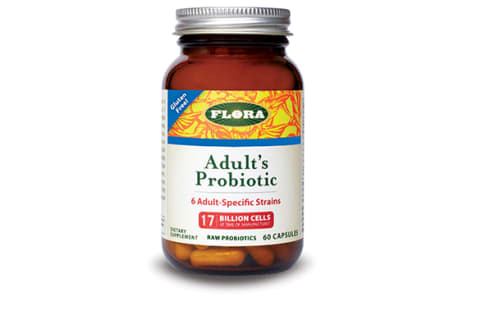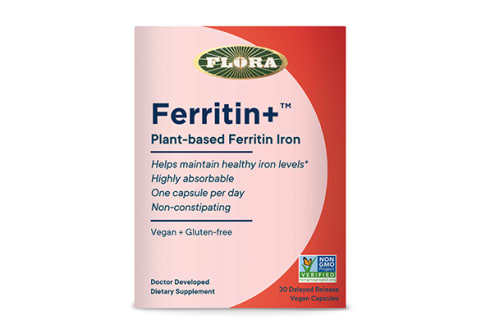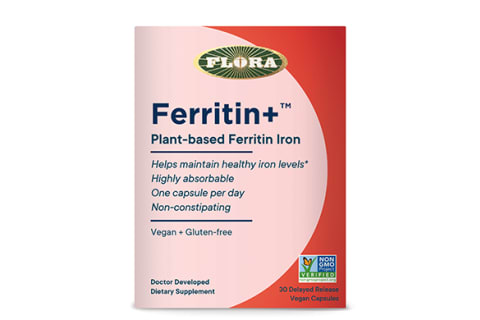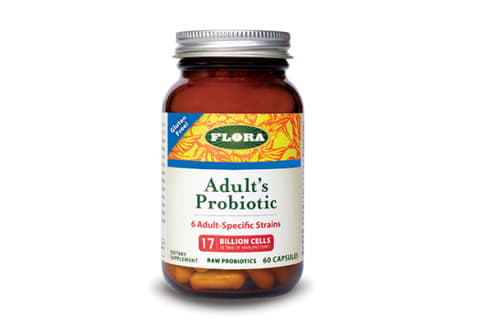Advertisement
An RD's Tips For Boosting Your Energy Levels Just In Time For Summer


With the cold and dark days of winter behind us, we're all ready to embrace spring and summer with open arms. But with these warmer seasons also comes an abundance of activities and social life. So how can we prime our energy levels for more fun in the sun?
Making time for rest, exercising proper nutrition, and utilizing supportive supplements, like Flora Health's Adult's Probiotic and Ferritin+ can help to promote healthy energy levels and immune function throughout your action-packed summer.* But to dive even deeper into the topic, we spoke with RD and seasonal eating expert Maggie Michalczyk.
mindbodygreen: What are your go-to tips for maintaining energy during the warmer months when our social calendars are at an all-time high?
Maggie Michalczyk, R.D.: Carving out some downtime for yourself even when your schedule gets hectic during the warmer months is a must in my book. We can't show up as the best versions of ourselves if we don't take care of ourselves through rest, proper nutrition, and other healthy habits that contribute to our overall wellness.
Making time to stick to your routines, whether that be cooking meals at home as much as we can, unplugging from screen time, exercising, keeping up with our supplements like probiotics, and downtime are all mindful practices that will help ensure we're feeling our best and that our energy stays high during busy times.*
Also when the temps are high and we're out and about, it's extra important to make sure we're staying hydrated, as not taking in adequate fluids is a major energy zapper.
mbg: You mentioned probiotics. How does gut health contribute to energy levels?
MM: First and foremost I think it's important to understand that the gut is connected to so many different functions in our body other than just digestion. The good bacteria in our gut actually help to create some B vitamins that are crucial for energy production. Good digestion from a healthy gut can also help us feel our best and more energized.
Overall, when our gut is off, we don't feel as great as we should, which could mean low energy, mood, and more for some of us.
mbg: How does the heat affect our guts?
MM: Some studies have found that heat increases gut permeability, which allows bacteria to more readily pass through the digestive tract lining. More research is needed on the exact mechanism of this in humans. The good news is our body has ways to regulate and adapt so that our core temperature is maintained and functions stay in balance.
mbg: What role does iron play in maintaining energy?
MM: The body needs iron in order to make hemoglobin, a protein in red blood cells that carries oxygen from the lungs to all parts of the body.* That oxygen then becomes part of the chemical process of energy production. This explains why people who have inadequate iron intake or low iron levels can experience low energy and mood, as well as less immune resilience.
mbg: How do warmer temps affect our iron levels?
MM: Iron is lost through sweat1 and because of this, the hotter months may put you at greater risk for low iron levels, especially if you are very active and/or a population that is already at risk, such as female endurance athletes. It's important to keep this in mind if you've experienced iron status issues in the past as well.
mbg: As a seasonal eating expert, what are some foods you recommend eating this spring and summer for extra support?
MM: Eating seasonally has so many benefits and is something I urge people to do year-round, as it also helps us increase the diversity of plant foods in our diet, which research has shown is especially good for gut health. Aim for at least 30 plant foods a week (roughly four different fruits or veggies a day) to help optimize gut diversity.
In the spring incorporate asparagus, artichokes, leeks, greens, and radishes into your diet in different ways. Asparagus and leeks contain prebiotic fiber that feed the good bacteria in our guts.
In the summer I say reach for fruits and veggies like berries, peaches, tomatoes, stone fruits, peppers, zucchini, watermelon and more to add more seasonal fun and diversity to your diet. Most of these also have a high water content, helping with hydration during the hot months also.
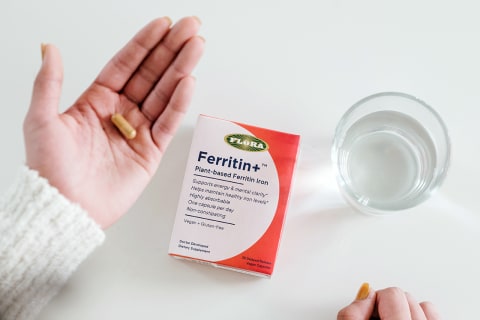
The takeaway.
With spring in full bloom and summer just around the corner, it's easy to dive headfirst into all that the warm weather has to offer. From weekend beach trips to rooftop happy hours and outdoor workout classes, the activity never stops—which is why you'll want to do all you can to stay on top of your game. Along with self-care, rest, and home-cooked, seasonal meals, maintaining a consistent supplement routine may be the extra boost you need to take on the season with ease.
When it comes to supplements, probiotics are our BFFs. But make sure to look for one that has a variety of adult-specific strains, like Flora Health's Adult's Probiotic. For those with low iron—or looking to proactively maintain iron levels throughout the hotter months—Flora Health's Ferritin+ will be your go-to.* Plant-based ferritin iron is a naturally protein-coated form of iron found in legumes that allows for time release and efficient absorption, which helps to minimize digestive upset.* With a little balance and some supplemental support, you'll be ready to turn up the heat (pun intended) on your summer plans!

